MAVERICK CITIZEN EDITORIAL
This is a moment for lasting solutions based on all constitutional rights
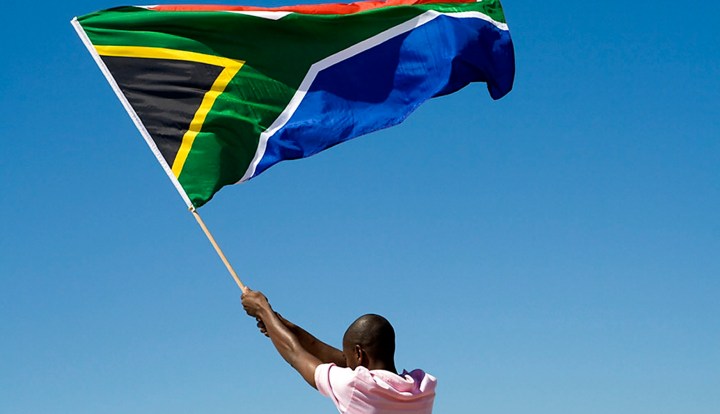
For the past 25 years, South Africans have built new forms of exclusion, but all the while kept promising that ‘though the arc of the moral universe is long it was bending towards social justice’. Many poor people don’t believe that any more and are taking things into their own hands. Literally.
Mark Heywood is the Editor of Maverick Citizen
In the 1980s when I was a young man and an aspiring human rights activist, my head was filled with big dreams of liberation and justice. One of the things I remember my then political mentor telling me was that in South Africa the National Party only governed because of a tacit resignation of the majority of black people to their power. Yet, he said, black people so outnumbered white people that if one day they simultaneously decided enough was enough and revolted, even if just with sticks and stones, there was nothing the might of the white regime could do.
Today, the same might be said about the power relations between poor people, still overwhelmingly black, and middle and upper-class people: there is a resignation that this is their lot and they lack power to do anything about it.
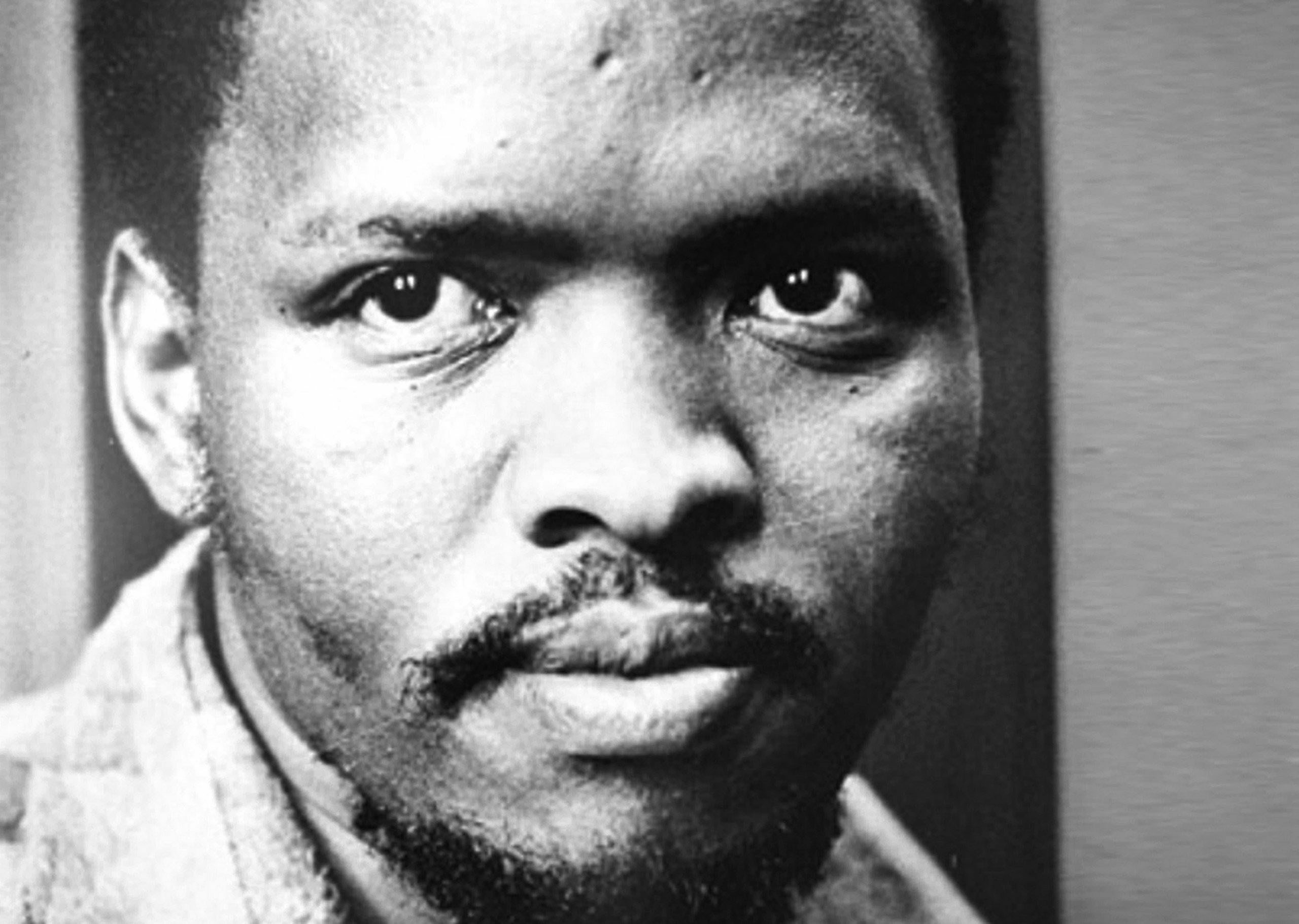
Overcoming the internalisation of racism and the rationalisation of inequality was something Steve Biko was aiming at with his efforts to build a movement, located in black consciousness. Biko realised that, through Bantu Education and other means, many black people had internalised racial inferiority. (Photo: biography.com / Wikipedia)
Overcoming the internalisation of racism and the rationalisation of inequality was something Steve Biko was aiming at with his efforts to build a movement, located in black consciousness. Biko realised that, through Bantu education and other means, many black people had internalised racial inferiority.
He believed that success in the struggle for equality and the end of apartheid depended on breaking that collective inferiority complex.
Biko was murdered — but in 1976, a year before he died, the uprising of young people that started in Soweto marked the beginning of the end of that unsocial contract. The revolt spread and eventually by the middle of the 1980s South Africa had become ungovernable.
The more things change…
Of course, things have changed fundamentally since then. Or have they? Have the events of the past few days marked another watershed moment?
Whether we like to admit it or not, in the 1970s and 1980s the majority of white people — and a few black puppet “leaders” — thought they were secure in comfort with apartheid. Their eventual embrace of democracy came as an act of self-preservation. Then for a combination of sometimes good but often bad reasons, they adapted to the idea of democracy.
But sadly, despite our many real advances and despite having adopted a vitally important legal architecture premised on equality — the Constitution — not enough has changed, particularly when it comes to privilege and the day to day exercise of power.
For the past 25 years, South Africans have built new forms of exclusion, but all the while kept promising that “though the arc of the moral universe is long it was bending towards social justice”.
To some degree, this promise, encapsulated in a transformative Constitution with fundamental human rights at its heart, brought consent for a continuation of poverty and inequality. After all, social justice isn’t built in a day. Political freedom did matter and was tangible. For a while, it was enough. But as years passed, rich and poor people once again internalised the trappings of inequality, homelessness, foodlessness, inferiority — as if it is the natural order of things.
Today too many privileged people feel secure in inequality.
Or they did.
That is why today we find ourselves at a similar pivotal moment.
However, the events of the past few days suggest that consent to an impermissible and extreme inequality is now broken.
It was inevitable; hunger is a violation of the constitutional contract, as I’ve tried to warn before. First, Covid-19 laid bare pre-existing inequality; then the response to Covid-19 made inequality much much worse (look at the latest Nids-Cram report for evidence); and increasingly it looks like during and after Covid-19 the elites in South Africa and the world are preparing to move forward leaving the majority even further behind.
Of course none of this rationalising takes place in the mind of a looter, or an otherwise law-abiding person who finds themselves taking advantage of the moment to fill their trolley carts.
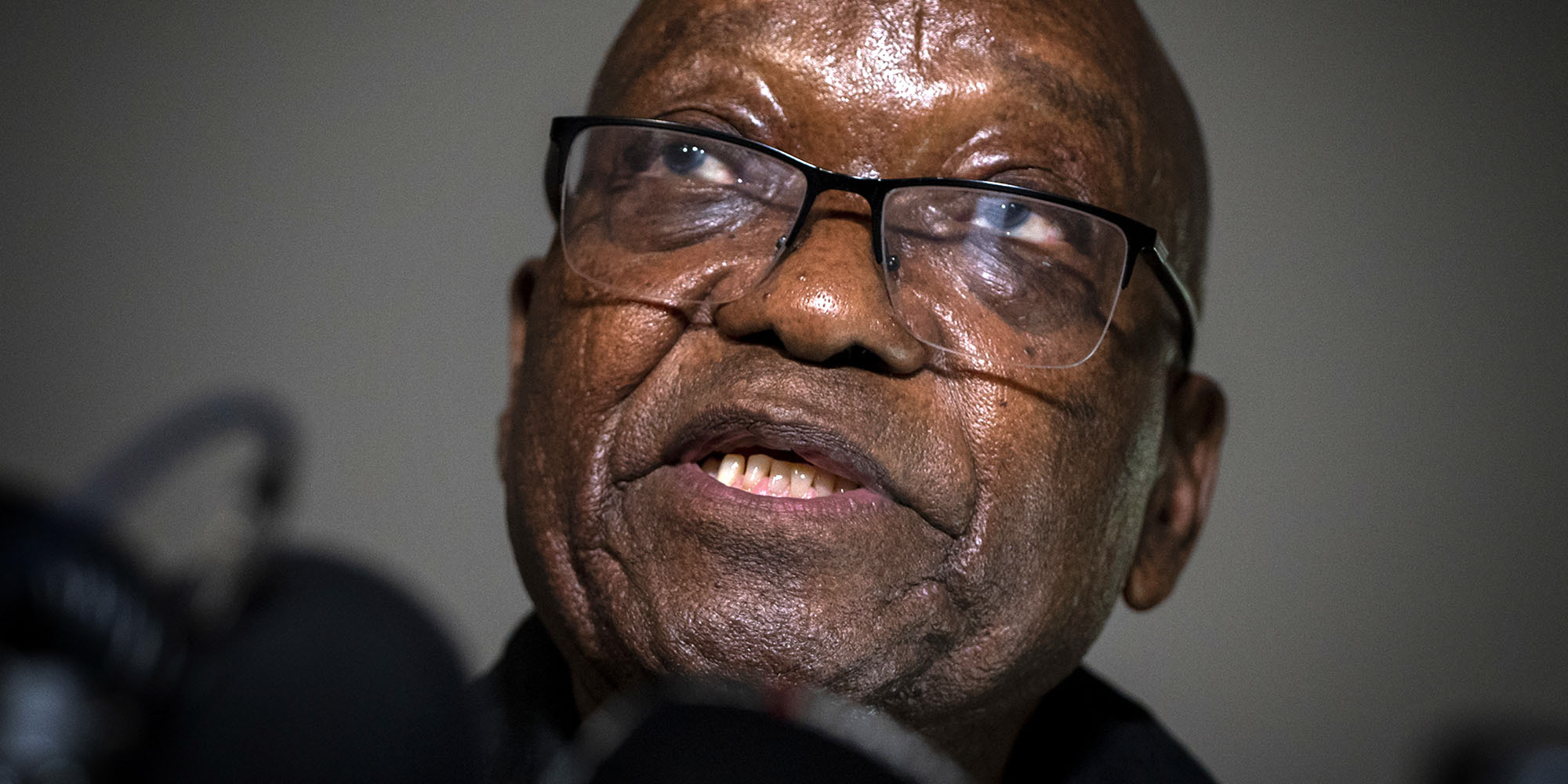
Former president Jacob Zuma addresses the media during a press conference at his home in Nkandla, KwaZulu Natal Province, South Africa on Sunday, 4 July 2021.
(Photo: Shiraaz Mohamed)
Just as very few of the rioters care much about freeing Jacob Zuma, few are espousing demands for equality and social justice. But instinctively many many people feel — and will tell you — that the law does not protect them. As homeless writer Tshabalira Lebakeng illustrates here, many poor people have lost trust and faith in the law.
That is why it is a perverse irony that literally at the same moment the looting escalated, the Constitutional Court sat with enormous gravitas to piously deliberate the legal architecture that protects one rich man’s rights to a fair trial and his dignity. That day’s hearing alone cost hundreds of thousands of rands.
In the Constitutional Court, it was implied by Zuma’s well-heeled and well-paid legal team that the roof of the constitutional architecture will fall down if his fair trial rights are violated (which they are not). The court obligingly entertained these arguments. But while it did, using decorous legal language, the multitudes whose rights are actually being violated on a daily basis by hunger and homelessness threw off for a day or two the chokehold of unkept promises.
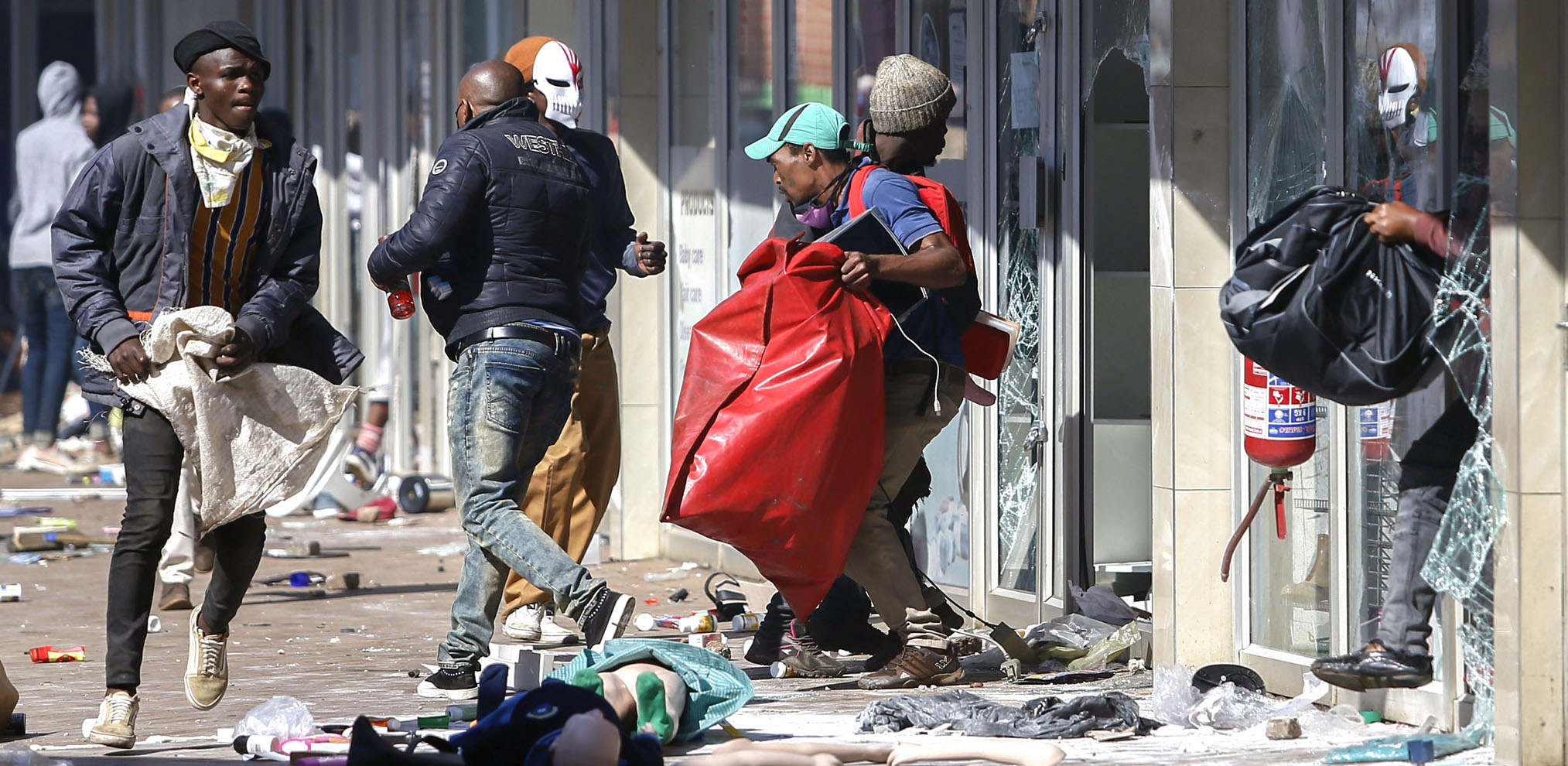
Residents flee from police after sporadic looting at Letshoho mall in Katlehong. (Photo:Felix Dlangamandla)
Without putting it in fancy legal language, many looters gave expression to the fact that the “rule of law” is perceived as a largely self-serving concept for elites; that the ladder of law actually does have a top and a bottom. At the top sits Jacob Zuma and his ilk, who have spent more than R20-million to afford to play the law to their advantage. At the bottom are the people whose primary encounter with the law is a police holding cell and the invisible electric fences of economic apartheid.
There has been a lot of polarisation and understandable fear over the past few days. A few nights ago I watched my Plotwatch prepare for an invasion from a nearby informal settlement. This is a real moment of danger for all people.
It involves excess. It is ugly. It should be condemned. But it should also be understood. We should learn from history that revolt is never pretty.
In the aftermath of 1976 came the killing of councillors and the necklace. I don’t romanticise or seek to legitimise this revolt, it is tragic and painful. But I do think we should understand it and take it as a wake-up call. Nothing will be achieved by securing ourselves in the comfort of convenient tropes or straw men.
Certainly, Jacob Zuma and his cynical self-seekers did throw the match on the tinderbox. But as former Statistician-General Pali Lehola and many others have pointed out, the fire was already made. Zuma might wish that he had so much power, but he doesn’t. What he does have, however, is the power to divide, instigate and encourage anarchy and violence — and that is power enough.
So what happens now?
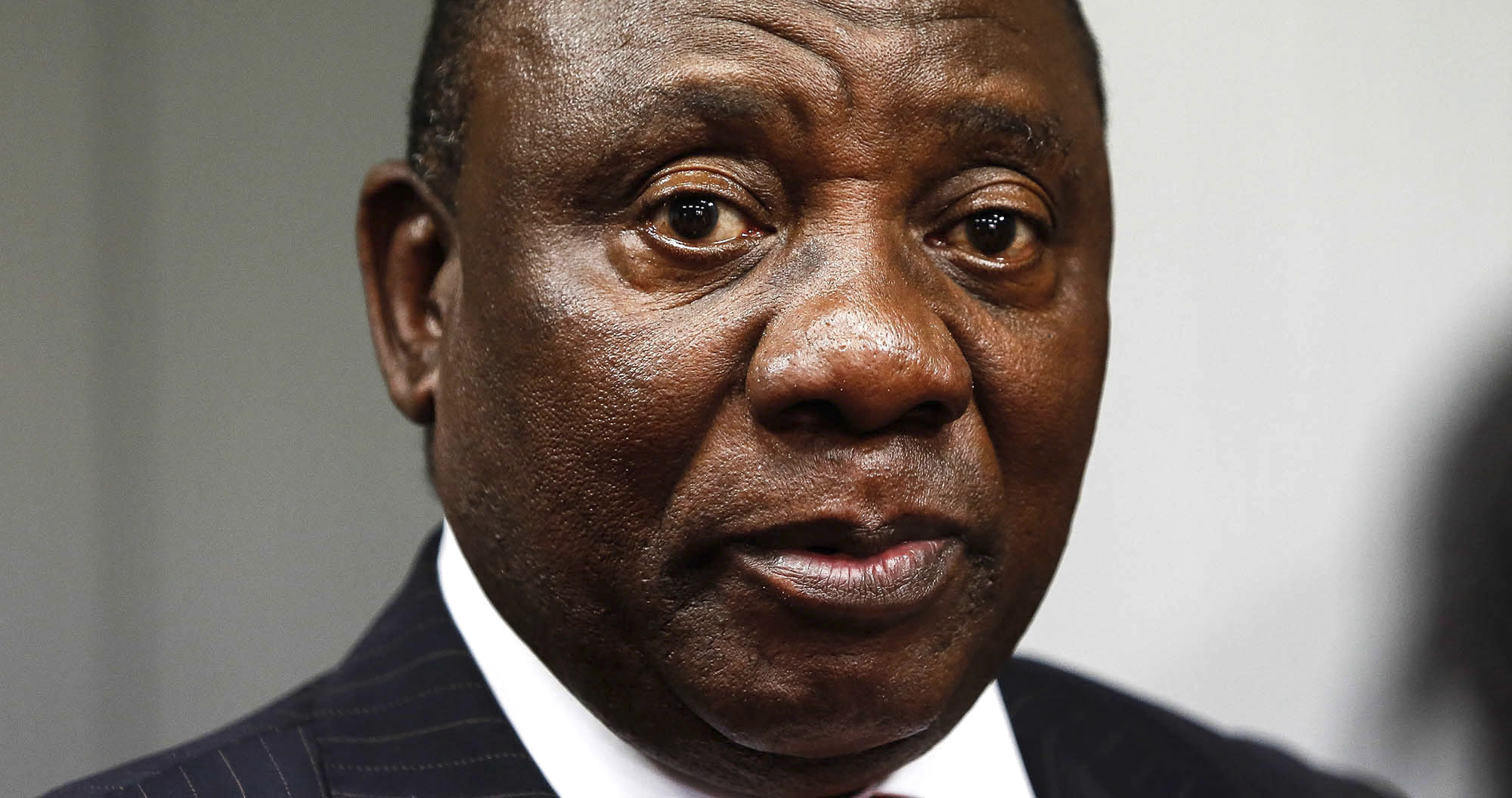
President Ramaphosa began his address to the nation by talking about the sanctity of human life over property. But only at the end of it did he touch on the poverty and inequality that blights and desanctifies so much human life. (Photo: Gallo Images / The Times / Moeletsi Mabe)
On Monday night, President Ramaphosa started his address to the nation by talking about the sanctity of human life over property. But only at the end of it did he touch on the poverty and inequality that blights and desanctifies so much human life. He admitted that:
“This moment has thrown into stark relief what we already knew: that the level of unemployment, poverty and inequality in our society is unsustainable.
“We cannot expect a lasting and durable peace if we do not create jobs and build a more just and equitable society in which all South Africans can participate freely and equally.
“We must therefore commit ourselves not only to peace, but to greater economic opportunity for all.”
But people don’t believe the president. They’ve heard these words before. This was no Madiba moment. So it felt like lip service and it came without a plan that would indicate conviction. It came a day after 200 civil society organisations, organised as a #PaytheGrants coalition, had held a rally to call for the government to restore the Social Relief of Distress (SRD) grant and to institute a Basic Income Guarantee.
Prof Sandy Liebenberg, chair in human rights law at the University of Stellenbosch, has argued (here) that cutting the SRD at this moment is unconstitutional. She’s surely right. Providing social security is urgent and immediately necessary. But it’s not enough.
A law and order response that respects human rights is also necessary, but it too is not enough.
Rather than depending solely on the police and army, what we now need is a full-blooded investment in realising the rights that lie at the heart of our much-vaunted Constitution.
We can do it.
We have the resources.
We must just find the political will.
Perpetuating extreme poverty and inequality has far greater negative economic and fiscal implications than taking the necessary brave, visible, immediate measures to begin to create employment, opportunity, quality education and to do so within the framework of the Constitution.
Finally, this should not just be the plea of civil society, but of all society, especially big business.
Individual justice should not just be the business of our courts, but social justice.
This is the moment of truth for the Constitution, not just with regard to Jacob Zuma, but with regard to how we treat millions of people who, unlike Zuma, are actually socially and economically disenfranchised and who have become citizens and rights-bearers only in name. DM/MC




















 Become an Insider
Become an Insider
The money for BIG has been stolen, it is no longer a matter of just rolling it out…how is the country to finance this? And no the answer cannot be more taxes for the tiny tax base nor printing money like has been suggested in other articles.
Does this sound familiar? “There is never enough time to do the job properly, but there is always enough time to do it all over again”.
(Billions will be found to repair the damage.)
The solution is not to create more handouts. That results in increased dependency. The funds should be for quality education (nonexistent) and investment (very little of) and thereby enfranchisement of the extremely poor.